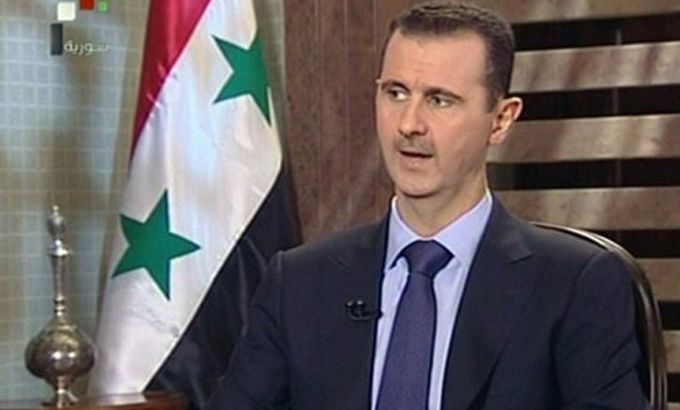Assad warns against foreign intervention
Syrian leader vows to be “tough against terrorism” and says parliamentary polls will be held in February 2012.

Syrian President Bashar al-Assad has warned against foreign military intervention in his country, in an appearance on state television.
In an interview broadcast live on Sunday, Assad said: “Any action against Syria will have greater consequences [on those who carry it out], greater than they can tolerate”.
“First, because of Syria’s geopolitical location and second [because of] Syrian capabilities. They know part of it but they do not know the other parts and they will not be able to afford the results,” he said.
No country has yet proposed military action against Syria, but the US and EU last week called on Assad to step down.
Assad said those calls were not even worthy of a response, adding that he was appointed by the Syrian people, not by the West.
Assad also spoke about political reforms, saying local elections were to be held within months, to be followed by parliamentary polls.
“The expected time for having the parliamentary election is February 2012,” he said.
Unrest ‘more militant’
Commenting on the deteriorating security situation in his country, the president said the unrest had become more “militant” in recent weeks, but that he was confident it could be controlled.
“We are capable of dealing with it.. [I] am not worried,” he said.
The government has repeatedly blamed the unrest in the country on “armed terrorist groups” and defended the military operations.
In the interview, Assad returned to the “terrorist” rhetoric, saying “we need to be tough”, and vowing that anyone found guilty of involvement in “crime” was to be punished.
Protesters took to the streets in several cities across Syria after the broadcast.
Assad’s television appearance was his first since June 20, and only his fourth since the start of demonstrations in mid-March.
Al Jazeera’s Scott Heidler, following events in Syria from neighbouring Lebanon, said the broadcast represented a “new tactic”.
“It was clearly for internal consumption,” he said. “It was a much more relaxed setting, at a round table, speaking to two journalists, instead of a speech.”
Continued crackdown
The interview came as activists said security forces continued their crackdown on dissidents.
The Local Co-ordination Committees said the town of Kafar Takhareem in the northern Idlib province was stormed by troops and regime thugs on Sunday morning.
“They have been raiding houses since 6:30 in the morning and arrested more than 175 persons, who were publicly beaten and then blindfolded and tightly stuffed into cars and driven to the security branches,” the activists said in a statement.
UN investigators said last week that an estimated 2,000 people had been killed since the unrest began.
A UN humanitarian team has been granted entry to Syria, and on Sunday began its mission to assess the situation in the country.
A UN spokesman said the objectives of the mission were “to see how the UN can support public services and how it can respond to possible humanitarian needs”, such as electricity, drinking water, communications and health.
Rashid Khalikov, head of the Geneva bureau of the UN Office for the Co-ordination of Humanitarian Affairs, is leading the team, which will stay in Syria until August 25.
Meanwhile, opponents of Assad met in Turkey to launch a “national council”.
Participants in two days of meetings in Istanbul, from both inside and outside Syria, planned to set up working groups and draft measures aimed at ousting Assad, organisers said.